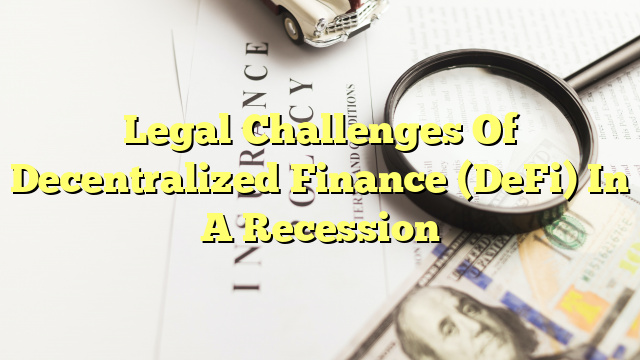Table of Contents
Challenges of Decentralized Finance
Decentralized Finance (DeFi) has gained significant popularity in recent years, offering innovative financial solutions that operate on blockchain technology. However, along with its advantages, DeFi also presents several challenges that need to be addressed.
- Lack of Regulation: One of the main challenges of DeFi is the absence of clear regulatory frameworks. Traditional financial systems operate under strict regulations to ensure consumer protection, prevent money laundering, and maintain market stability. In the decentralized world of DeFi, these regulations are often lacking, leading to potential risks for users.
- Smart Contract Risks: DeFi relies heavily on smart contracts, which are self-executing agreements with the terms of the agreement directly written into code. While smart contracts offer automation and transparency, they are not immune to bugs or vulnerabilities. Exploiting these vulnerabilities can result in financial losses for users.
- Scalability Issues: DeFi platforms often face scalability challenges due to the limitations of blockchain technology. As more users join the network, transaction speeds can slow down, leading to higher fees and reduced user experience. Solving scalability issues is crucial for the widespread adoption of DeFi.
- Interoperability: DeFi projects are built on different blockchain networks, making it challenging to achieve interoperability. This lack of compatibility limits the seamless transfer of assets and data between different DeFi platforms, hindering the overall growth and efficiency of the ecosystem.
The Biggest Challenge of DeFi
While all the challenges mentioned above are significant, the biggest challenge of DeFi lies in its lack of regulation. The absence of clear regulatory frameworks poses risks for users and investors, as they may fall victim to scams, fraud, or other malicious activities. Without proper regulations, it becomes difficult to ensure the security and stability of the DeFi ecosystem.
Disadvantages of Decentralized Finance
Along with the challenges, decentralized finance also has some disadvantages that need to be considered:
- Volatility: DeFi projects often involve cryptocurrencies, which are known for their high volatility. Fluctuations in the value of these assets can result in significant financial losses for users.
- Limited Accessibility: While DeFi aims to provide financial services to the unbanked and underbanked populations, the current infrastructure and technical requirements can limit accessibility for those without internet access or technical knowledge.
- Security Risks: The decentralized nature of DeFi makes it vulnerable to security risks. Hackers can exploit vulnerabilities in smart contracts or decentralized applications (dApps) to steal funds or manipulate the system.
- Regulatory Risk: As mentioned earlier, the lack of regulation in DeFi exposes users to regulatory risks. Governments and regulatory bodies may impose restrictions or crackdowns on DeFi activities, impacting its growth and adoption.
Regulatory Risk in DeFi
Regulatory risk in DeFi refers to the potential legal and regulatory challenges that can arise from operating in a decentralized financial system. As governments and regulatory bodies catch up with the rapid growth of DeFi, they may introduce new regulations or enforce existing ones that could impact the industry.
Regulatory risk includes concerns such as:
- Uncertainty: The evolving nature of regulations in the DeFi space creates uncertainty for users and investors. It becomes challenging to navigate the legal landscape and comply with changing requirements.
- Compliance: DeFi platforms may need to implement robust compliance measures to ensure they meet regulatory standards. This can include Know Your Customer (KYC) procedures, Anti-Money Laundering (

